Resources
Psychometric tests
The complete guide to psychometric testing
Home » Resource Library » Psychometric Test Guide
What is a Psychometric Test?
Psychometric tests offer a fair and objective way of measuring a range of attributes such as aptitude, critical reasoning and behavioural style.
For a test to be considered ‘psychometric’, it must be standardised, reliable and valid. It must be consistent in its content, administration and scoring. This ensures the test is accurate and measures what it is supposed to, whilst omitting the influence of subjective biases.
Read our What is a Psychometric Test? blog post for a more detailed description.
Psychometric tests in recruitment
Psychometric tests are often used within recruitment and development processes with the aim of helping employers identify the most suitable candidates for job applications or promotions, based on the extent to which their personality and cognitive abilities match those required to perform the role.
Today, most tests are completed online, though some paper formats are still used as part of assessment and development centres. Most are timed, with the exception of some psychometric personality tests which can be completed across multiple sittings.
Psychometric tests may be used at different stages of the recruitment process:
- At the early stages of selection to screen-out candidates who are likely to be unsuitable for the job
- Prior to an interview as a tool for facilitating interesting discussions around a candidate’s profile
- At a later stage, possibly with a second interview or as part of an assessment centre. You may wish to re-assess candidates at this point to confirm the results of earlier tests
Why use psychometric tests?
Today, more companies are using psychometric assessments to aid in their recruitment, development and promotion decisions. This evolves from their capacity to better predict future job performance of candidates and person-organisation fit compared to just using gut instinct alone.
Outside of recruitment, psychometric tests can be used for development by offering insight into training and staff needs, as well as career guidance.
Assessments on the Clevry platform deliver a range of benefits:
1.
Cost efficient
Psychometric assessments can help to lower recruitment costs and maximise your efficiency by reducing time spent on manual processes as well as reducing the risk of a bad hire.
2.
Retention
Provides an overall evaluation of a candidate’s strengths, weaknesses and behavioural style at work with the aim of identifying the best fit for a particular job. This helps to improve employee retention through better hiring decisions.
3.
Objective
A valid and reliable psychometric test will provide objective assessments. They provide clear cut information about a candidate without preconceptions based on trivial things such as what someone looks like or where they grew up.
This means our tools correct for cognitive shortcuts, such as these biases, which we cannot always control. Using psychometrics means that human error is severely reduced and can give a more accurate overview of someone’s preferences at work.
4.
Helps with candidate onboarding
Employee onboarding plays a crucial part in keeping your new hires engaged and productive.
Without a structured onboarding process, organisations can see staff turnover rates of up to 50% within the first year of employment. When used correctly, positive onboarding can help ensure that your new hire is nurtured based on their strengths and preferences, increasing productivity, loyalty and engagement.
5.
Predictive
Scientifically speaking, psychometric assessments can help replicate job performance much better than CVs, references or interviews alone. By including test results in the decision-making process, you increase the chances of making a good hire who better fits your company culture.
6.
Helps with long-term development
Employers are better positioned to provide ongoing development tailored to each individual’s needs by knowing your employee’s motivational drivers, work-based strengths and weaknesses.
7.
Reduces hiring bias
Implementing psychometric tests during the selection phase of your recruitment can go a long way to helping reduce cognitive hiring bias. Everyone experiences bias in some form, and having assessments to lean on throughout the recruitment process allows businesses to combine data and intuition to make the best possible hiring decisions.
8.
Reputation
Having a seamless recruitment and assessment process helps to creates a more professional corporate image, meaning candidates will come away with a more positive experience of your company – even if they don’t get the job (hopefully 😬)
9.
Increase diversity
By removing biases from the selection process, psychometric tests can help organisations attract and select candidates from more diverse backgrounds.
This contributes to a more inclusive workforce, where individuals from different demographic groups have equal opportunities to succeed based on their abilities and qualifications.
10.
Better candidate experience
Candidates respond positively to their face validity and fairness. Completing psychometric tests, particularly personality questionnaires and situational judgement tests, requires candidates to consider their thinking and behaviour.
These activities and feedback sessions with candidates can help individuals increase their self-awareness and kick start their personal development.
The problem with gut instinct
While it would make the hiring process a lot simpler if you had a sixth sense about whether a candidate would be well suited to a position, even recruiters with good interviewer skills can be influenced by unconscious biases.
Traditional recruitment methods might give you that intuitive good vibe about a candidate; but that doesn’t mean your feelings are accurate. It is highly likely there are other factors at play that have clouded your view.
Not to worry though, this is something that inhibits all human decision making in an attempt to make life that little bit easier for ourselves and simplify the world around us. Cutting cognitive corners and being unaware of our sweeping generalisations means we find it extremely difficult to be truly objective and impartial – but allow us to make decisions a lot faster!
Unfortunately there are more organisations than you’d think relying on instinct as the key decider in their recruitment process, so here are just a few of the biases your thought process could be subjected to:
1.
Confirmation Bias
Confirmation Bias = forming an early hypothesis about someone and seeking to confirm it; favouring information that confirms our pre-existing views.
In an interview setting this could mean asking questions based on pre-existing beliefs about a candidate, resulting in interviews which gain little new information and which are difficult to compare across candidates, as they have been asked a wide array of individual-specific questions.
2.
Halo Effect
Halo Effect = a cognitive bias meaning that if an individual possesses one positive attribute or specific desirable trait, we inaccurately believe they will also possess other desirable traits by default. The opposite of this is known as the horns effect.
An example of this is when we meet someone who we believe is physically attractive; we also perceive them as having other positive attributes such as being intelligent or having above average interpersonal skills.
3.
In-Group / Out-Group
In-group & Out-group = we tend to prefer people who we identify as belonging to the same group as us, our in-group, compared to those belonging to an out-group.
Anything as trivial as someone’s favourite food to more obvious social groups such as including, where someone is from, or our friends could create an in-group. We tend to feel some kind of affinity towards these people which affects our ability to be impartial when making decisions about them.
4.
Stereotyping
Stereotyping = broad over-generalisations about a certain group, with assumptions that a trait or characteristic is true for every individual in the said group.
People may have stereotypes about very broad or narrow groups of people but regardless, these unfounded generalisations could influence their hiring decisions. For example, research suggests that there is a negative stereotype around people that are obese, and because of this, they were less likely to advance in the recruitment process.
Assessing personality at work
Personality questionnaires are used by employers during the early stages of recruitment to help identify candidates with the traits best suited for a role and to explore their behavioural preferences at work.
Candidates are typically presented with a series of statements relating to behaviour and motivations in the workplace and asked to rate the extent to which they agree or disagree with the statements e.g. strongly agree/strongly disagree. The results are then compared to a norm group of candidates who have previously taken the questionnaire, to understand how they have performed in relation to a general average.
The type of test you use is likely to depend on the role you are recruiting for. We have developed two off-the-shelf personality questionnaires:
- Core: 21 scale questionnaire offering insight into typical preferences and tendencies important in the workplace.
- Enhanced: 30 scale questionnaire which builds on the Core, giving a deeper understanding of different elements of personality.
Why do we assess personality?
1. Gain a deeper understanding of a candidate
By using these personality based psychometric tests, an employer can better discover how well an individual would fit into a team/organisation, the overall company culture and their work preferences.
This can help select the best talent based on the competencies of the job.
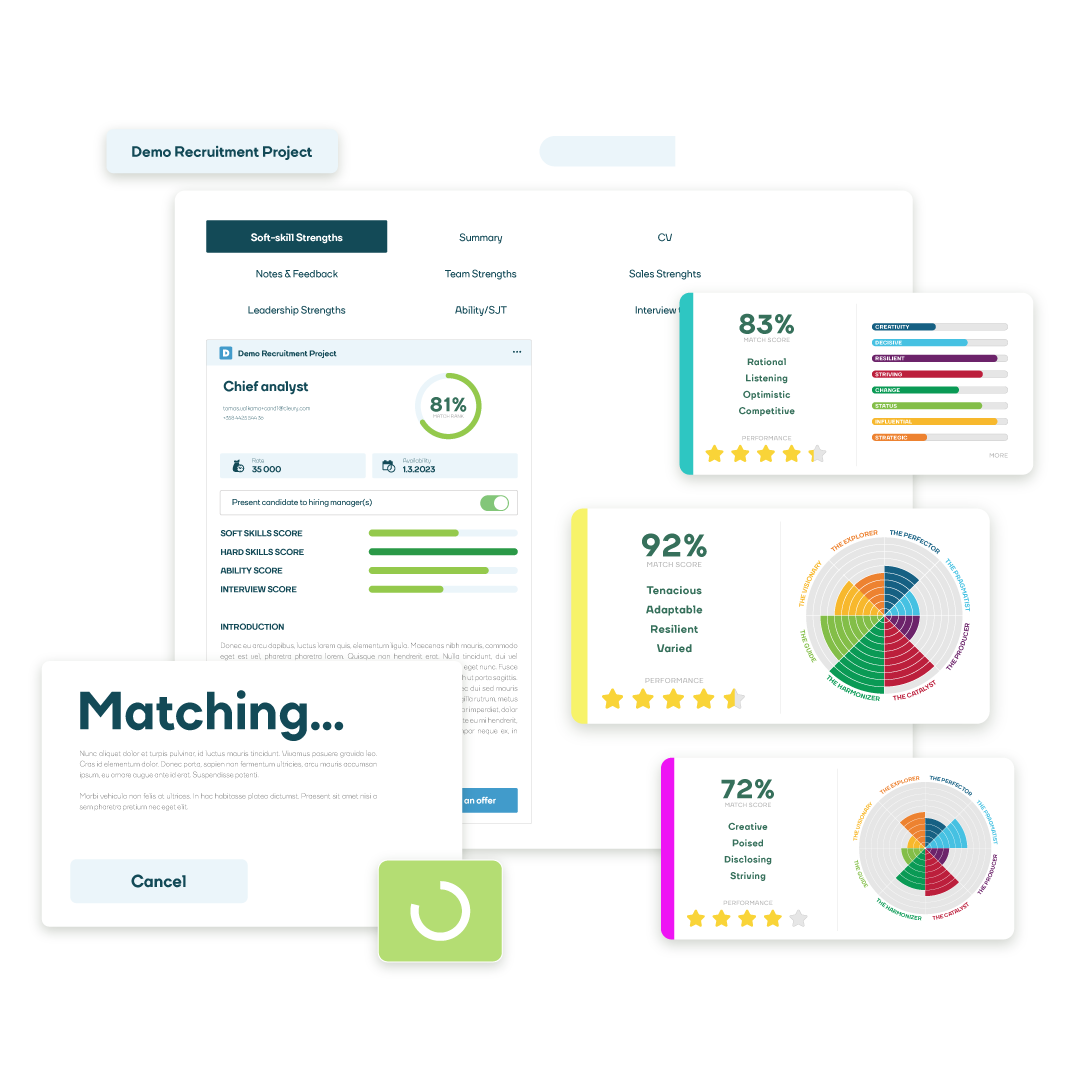
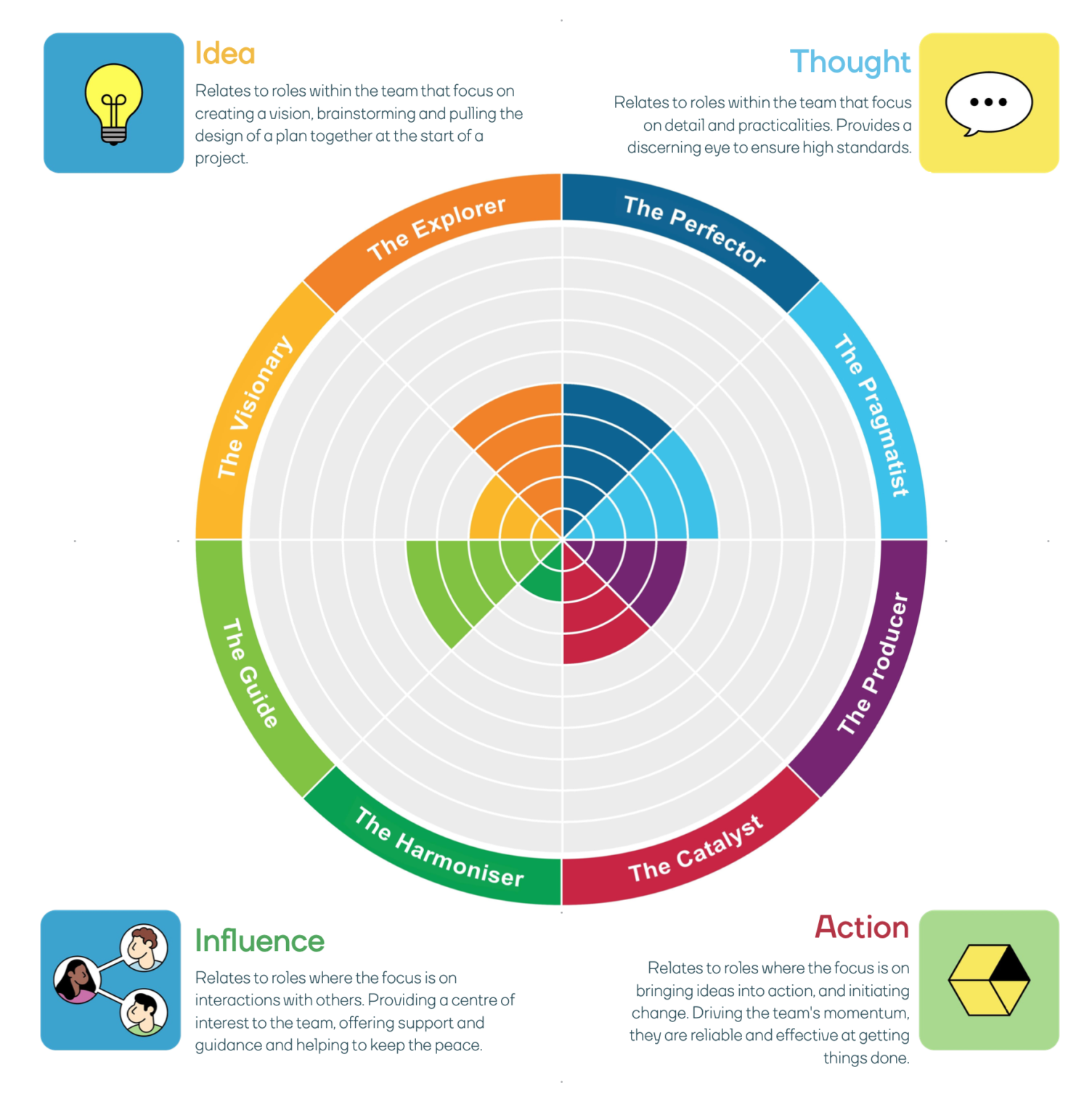
2. Generates multiple useful reports
Completing one personality questionnaire on the Clevry platform will yield a number of insightful reports that can be used by recruiters, hiring managers and line managers for a range of purposes.
Reports include our Selection Report, Team Strengths, Leadership Report, Sales Strengths, as well as our Interviewer Report which provides tailored interview questions and advice based on the recipients answers to our PQ, as well as several more.
3. Streamlines onboarding process
Onboarding can be time-consuming and expensive, so selecting the right talent in the initial recruitment phase can help make the process much simpler and quicker.
With our onboarding report, you can understand how a candidate fits into your organisation and receive guidance on an employee’s strengths and motivations to help them excel in the role.
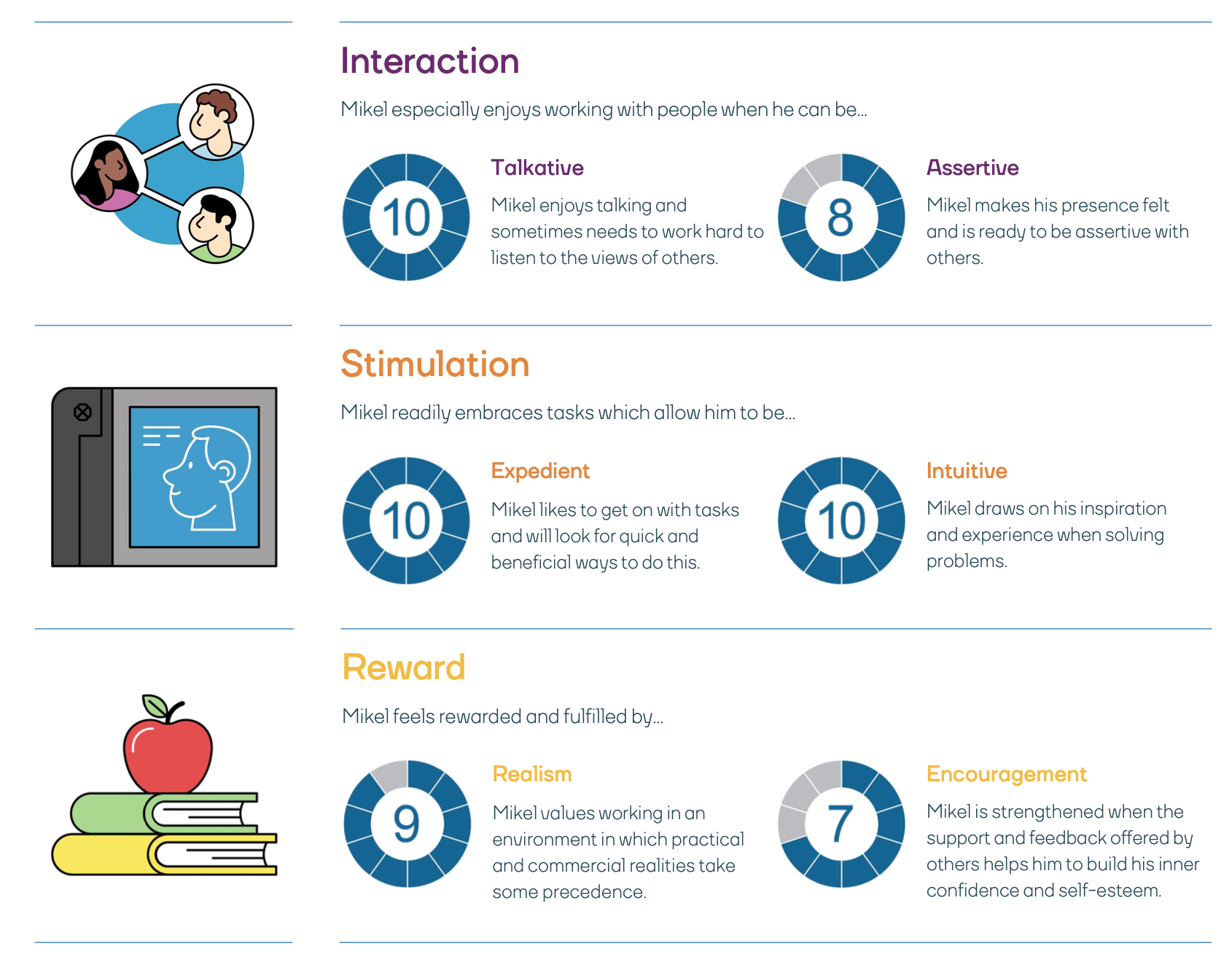
Types of psychometric test
Persoanlity questionnaire
Personality questionnaires help us to understand more about your style, approach and values at work, providing an insight into your interpersonal style, thinking style, emotional style, motivations and culture fit.
Situational judgement test
Situational judgement tests (sometimes called situational or behavioural assessments) assess your ability to pick the most appropriate action in response to a given scenario. This could be work related or something else.
Cognitive ability
test
A cognitive ability test assesses an individual’s mental capabilities, including problem-solving, critical thinking, and decision-making skills. It helps employers gauge a candidate’s potential to learn, adapt, and excel in the position they’re applying for.
Message Me (SJT)
A gamified form of situational judgement test. Message Me assessments take SJTs to new heights, adopting an instant messaging conversation format that is focused on simulating real-life work experiences for candidates.
Verbal ability test
The most popular type of ability test. Verbal reasoning tests assess your ability to understand and correctly extract meaning and inferences from written information.
Numerical ability test
Numerical reasoning tests require you to analyse numerical information and apply appropriate mathematical operations to identify the correct multiple choice answer from a series of questions.
Checking ability
test
Checking ability tests assess your ability to compare information quickly and accurately, and check the correctness of data.
Abstract ability
test
Abstract reasoning tests are a measure of general intelligence which assess your ability to identify rules, patterns and trends within visual datasets to solve problems.
Mechanical ability test
Mechanical reasoning tests require you to demonstrate your ability to apply mechanical and physical laws to real objects and processes, such as pulleys and levers.
Do psychometric tests actually work?
Psychometric tests come in many different shapes and sizes, and are used for many different purposes, but for now let’s look at personality questionnaires being used to inform the recruitment process.
First off, what we’ve developed is far more complex than your typical buzz-feed style quiz. All our psychometric tests have been created by our team of in-house occupational psychologists to ensure that they are easy to use, measure what they set out to (have validity), and are occupationally relevant. They have undergone a detailed development process and are based on empirical research and current personality theory.
Within our test platform, our tests are mainly used by recruiters to help aid decision making in the recruitment process, not to act as the be all and end all. They allow you to understand how a candidate sees themselves in the workplace and how they tend to behave, compared to their peers.
In order to receive BPS accreditation (an official governing body stamp of approval) tests must pass strict guidelines in order to prove they measure what they say they do, and that they accurately predict job performance.
When the BPS checks a test they look at reliability, validity, norm groups, test development and theoretical foundations as well as many other areas. This means that if a test has been accredited by the BPS they are sure to be sufficient in these aspects. If they were not at the time of review, the BPS would make suggestions on how to amend these issues and the test provider is expected to make these changes.
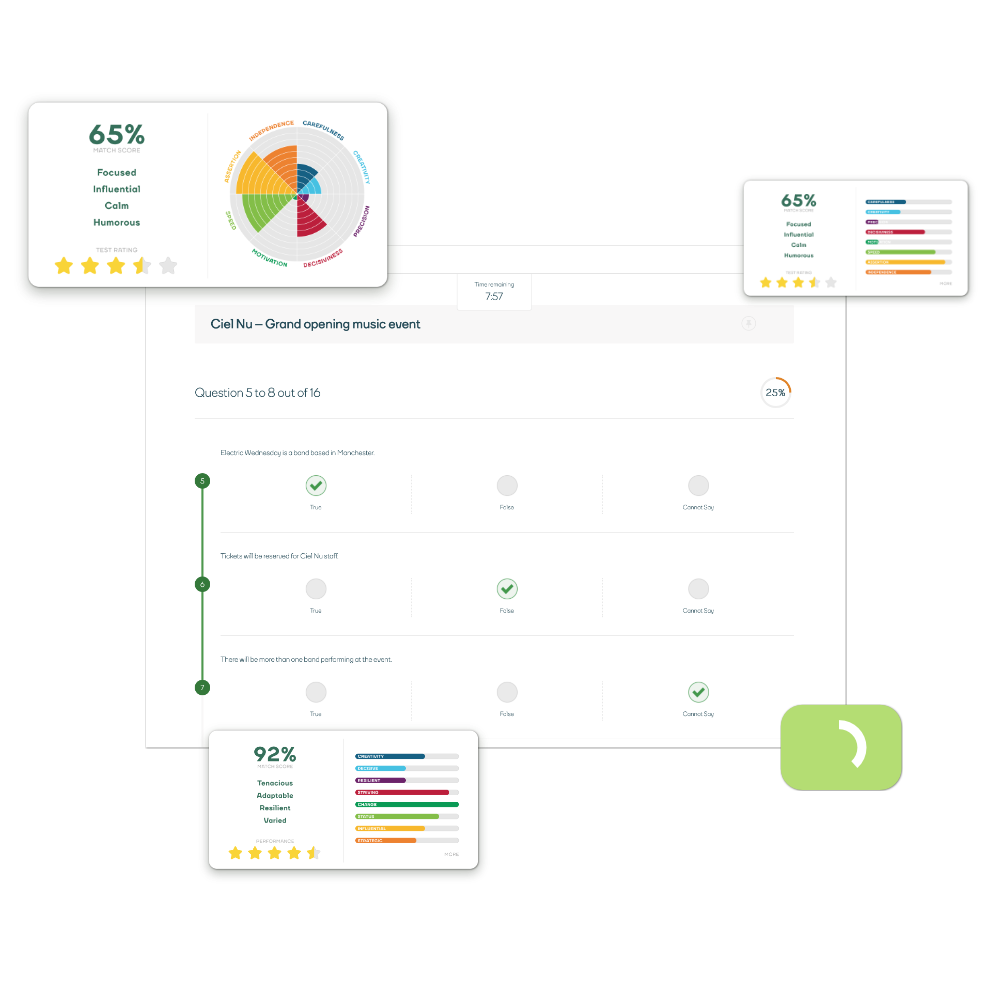
Warning signs
Before selecting a psychometric test provider to work with, companies should consider the following warning signs;
No BPS accreditation
The absence of BPS accreditation raises concerns about the validity, reliability, and ethical standards of the tests offered.
Without BPS accreditation, there’s a risk that the assessments may not be based on sound psychological principles or undergo rigorous validation processes, potentially leading to inaccurate results and unreliable insights.
Choosing a provider without BPS accreditation could compromise the effectiveness and fairness of the assessment process.
Providers unclear about what the test should be used for
If the exact same test and related report claims to be all singing all dancing, this could be a cause for concern.
For a well thought out overview of someone’s personality, it should be tailored towards a specific use and towards a specific viewer, and therefore presented differently.
Items are abstract
If items are very abstract, they may be poorly related to what they are intended to measure.
A test should be clear and not aim to fool the candidate in any way. Where items are unclear about what they are testing, they are often more ambiguous and open to interpretation by the candidate.
Items are emotion based and ask about personal life
A personality questionnaire (PQ) for recruitment should be concerned with a candidate’s behaviours, preferences and tendencies at work and so not surprisingly, should also ask questions in a work based context. A PQ should not ask about what you’re like at a party if it is aiming to be occupationally relevant.
Items are future based
A candidate’s ability to predict what they would do in the future is strongly influenced by their current state and how they are feeling in that particular moment, rather than traits; what they are like as a person. Instead items should ask about what a candidate is like more generally.
Vague output
If you receive a report that is vague, and includes only a small amount of information that seems genuinely relevant to you, then this is probably due to the fact the test is inaccurate. It may have made general sweeping statements to cover the fact that there is no deeper information available from the output of the test.
Type based assessments
Output which involves type based personalities can be great for development needs; for getting the conversation started about personality and to help people reflect on their preferences in comparison to other work colleagues.
They are not, however, a suitable tool for informing recruitment decisions as the narrow definitions or ‘boxes’ adopted by the type based approaches severely simplifies the complexities of an individual.
This means it is hard to distinguish between people of the same type as there is no deeper information about them.
Do psychometric tests put-off candidates?
We used to hear clients worry about this one a lot. It’s a common misconception among candidates that psychometric assessments are designed to catch them out or trick them in some way.
The fact is, research shows that candidates value a recruitment process that’s both fair and transparent, and psychometrics can go a long way in helping recruiters to achieve this. These kinds of tests are a more objective way to gain information about your candidates in a way that minimises human error. They ensure that the selection process is devoid of any biases or discrimination and allow a fair playing field for hiring decisions to be made upon. If candidates are aware of the objective nature of the tests, they will not be put off.
When candidates are asked to complete tests, the provider should ensure they measure things that are relevant for the role, explain clearly to the candidate why the tests are relevant and why they have been asked to do it. Also, making candidates aware of any practice questions that are available and general advice for test takers will reduce any lingering anxiety about completing the assessments.
In the past psychometrics may have been dull and intimidating, and the sheer boredom of completion would put candidates off, the best way to ensure that this is not the case is to make the candidate journey as interesting and as fun as possible.
Our assessment platform can be easily customised to show off your company branding and culture from the start of the recruitment process. The platform is built with the candidate in mind and research conducted by Clevry indicated that candidates preferred our tools to other market leaders (87% of candidates gave us a 4/5 star rating or above).

6 Myths about psychometric tests
1. ''ChatGPT means candidates can easily fake it''
We’ve heard this one a LOT recently. Often people are referring to the extent to which a candidate could potentially try and skew the assessment results to try and create a false or favourable impression.
We use a variety of psychometrically rigorous checks (such as an impression management scale, verification of test scores, randomised item banks and clear instructions with warnings to candidates) that are built into the Clevry algorithm.
This helps to promote honest and realistic responses from your candidates, giving you a more holistic view of your applicants, their work-place drivers, motivations and abilities.
While some argue that the advent of AI-like tools such as ChatGPT, have made assessing candidates more difficult, we disagree. At Clevry we use and recommend several strategies to combat candidate use of AI, such as disabling copy & paste, removing the ability for candidates to take screenshots and monitoring whether they switch between browsers

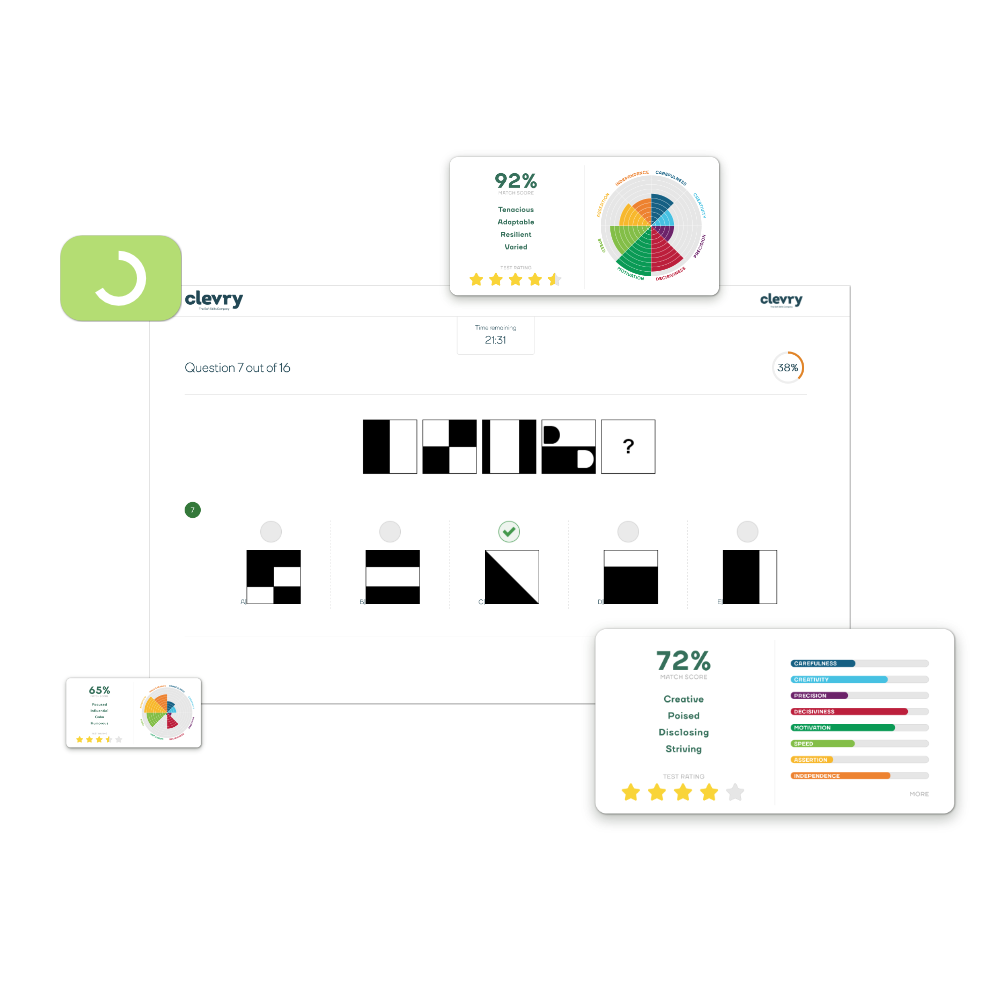
2. ''Assessments can’t beat my intuition''
Unconscious bias influences ALL human decision making. Therefore even the most skilled and experienced of interviewers will be influenced by unconscious bias towards their candidates at some level. As a species, humans just aren’t as objective or impartial as we like to think we are.
- Confirmation bias:
We form an early hypothesis about someone and subconsciously seek to confirm it. - In group / Out group:
We tend to prefer people who we identify with or belong to the same group as us. - Halo effect:
We exaggerate a positive attribute about a person and assume other good things.
A valid and reliable psychometric assessment provider (like us!) will always provide assessments that are as objective as possible.
3. ''Assessments will put my candidates off''
Research from real candidates has strongly indicated that they value and encourage a fair recruitment process – psychometric tests can help recruiters deliver this.
Recruiters can help candidates by making sure they’ve explained why they have been asked to complete an assessment and how they relate to the job on offer. This helps recruiters to gain their buy-in by providing candidates with a modern and engaging recruitment experience.

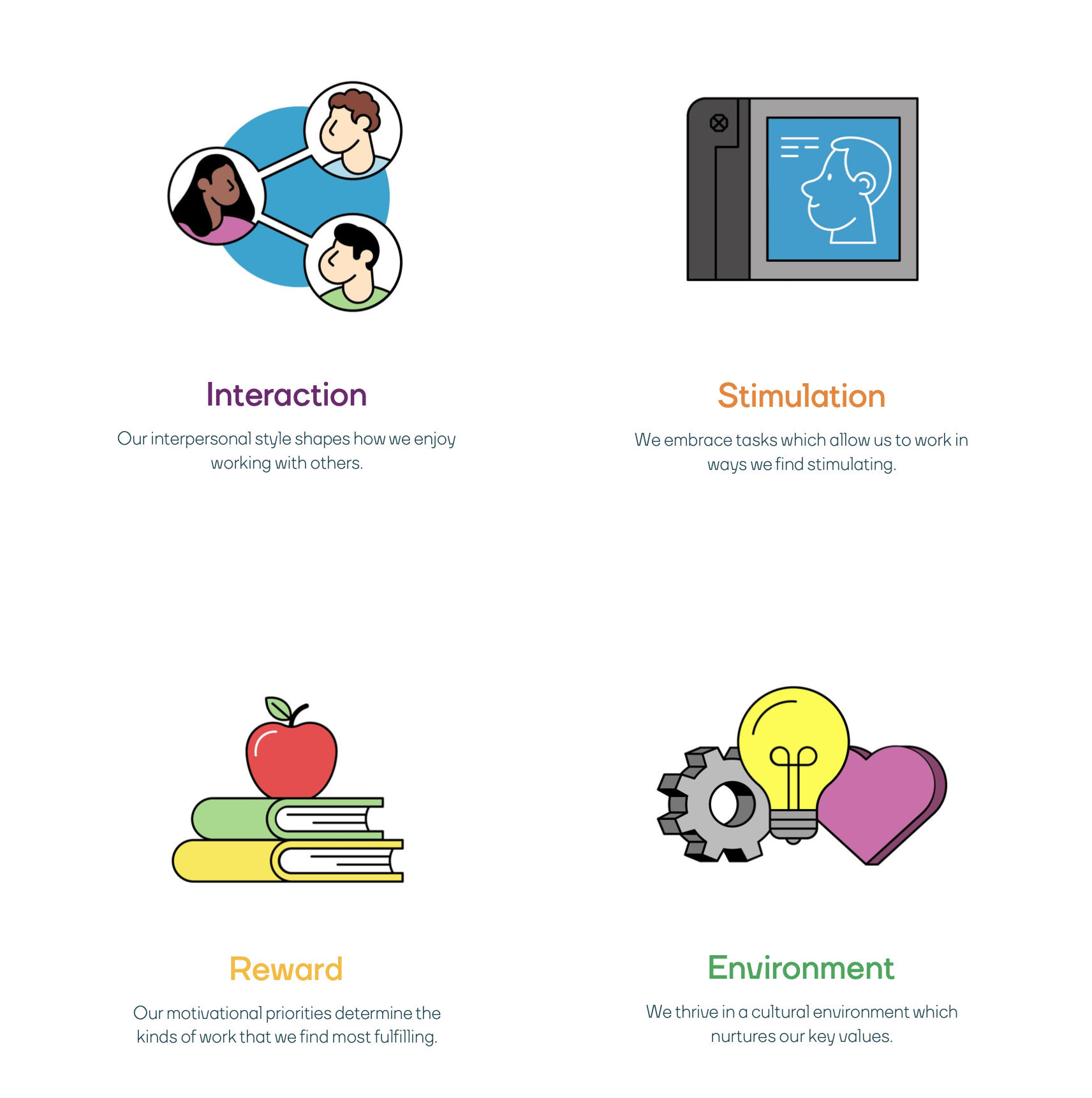
4. ''The tests won’t deliver tangible ROI''
We know seeing the tangible benefits of implementing psychometric tests is becoming more and more key for recruiters and staffing teams. When looking at ROI it is just as important to look at money saved as well as money earned.
We work with our clients to help measure the impact of implementing assessments on their recruiting, meaning recruiters can easily prove the ROI of our online assessments platform with ease.
As the global workforce becomes more digitally savvy, proving ROI will become more important for recruiters.
Of course we’ve done this for a range of organisations of different sizes, below are some key results we found (visit our case studies page for more details):
- 50% reduction in number of costly Assessment Centres needed
- Attrition rate reduced from 43% to 9%
- Double amount of successful applicants at second round interviews
- Reduced end-to-end recruitment time by 84%
- 60% reduction in recruiter administrative workload (saving £30,000 annually)
- 30% increase in successful hires
- Promotes a more diverse selection of candidates
5. ''Psychometrics don’t work''
In order to pass strict guidelines imposed by the BPS (British Psychological Society) we need to prove that our assessments measure what we say they do and accurately indicate future job performance.
The example provided (Schmidt & Hunter, 1999) shows that cognitive ability tests combined with a well structured interview is one of the simplest, fastest and most cost effective ways of predicting how a candidate will perform in a role.
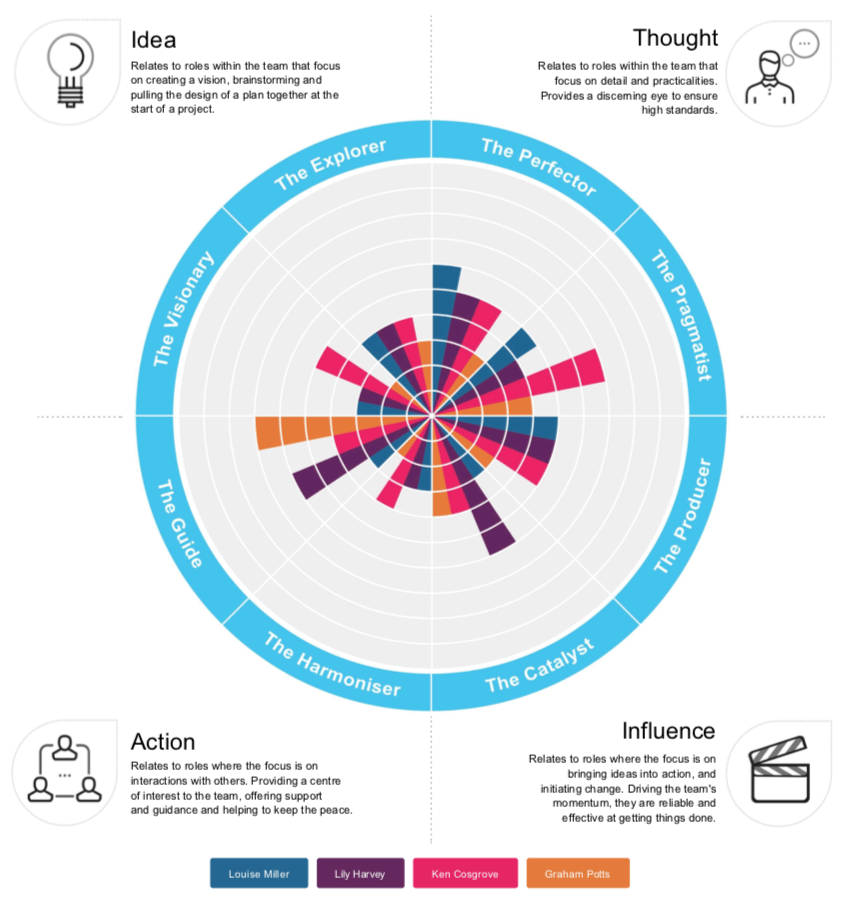

6. ''Psychometric tests are going to steal my job''
Simply not true. Our online assessment tools are designed to help you, not do your job for you (bittersweet we know).
All of our psychometric tests are designed to provide you with an honest and holistic view of your people. It’s up to you to decide how to use that information in your recruitment decisions.
How psychometric tests deliver ROI
While it can sometimes be difficult to measure the tangible benefits of implementing new software, HR teams are increasingly being required to justify their investments and have a good idea of an expected ROI.
Our clients, across various sectors and regions, have found that the addition of psychometric tests to their recruitment process has had a significant positive impact in several key areas.
Reduced staff turnover
Choosing the people who are the best fit for your company generally means they will stay longer with you (vs. poor fit candidates).
Psychometric tests help you hire candidates with a better personality, culture and role fit. If new hires are brought into the company whose preferences, behaviours and personalities are not well suited, they may feel like they don’t quite fit.
While it may be their dream job on paper, employees who feel out of place will be less motivated and may perceive their jobs as more difficult. They will quickly become stressed, have higher absenteeism (likely due to stress) and burn out more rapidly. It is, therefore, not only in your interest but also the candidates to pursue recruitment methods, which ensure candidates don’t end up in a role to which they are poorly suited. You can also use psychometric tests for onboarding and development to keep employees feeling engaged and valued after they have been hired.
This reduced risk of selection error results in reduced attrition. This translates into considerable savings in replacement costs, measured by the reduction in the number of replacement hires X average cost of replacing an employee.
Lower recruitment costs
Implementing psychometric tests is one easy way to help organisations to achieve a more streamlined recruitment process.
For a higher ROI, the earlier in the process candidates can complete psychometric tests, the better. If sifting can be based on psychometrics from the offset, it means that fewer candidates will have to be put through expensive assessment centres and a time-consuming interview process.
For example, suppose a candidate completes a cognitive ability test and scores well below the minimum requirement for a position which involves work with numbers.
In this case, test results help show the candidate is probably not suitable for the job. If psychometric tests were used early in the process, this candidate would have been sifted out early on. If the tests hadn’t been administered until later, the candidate would have been sifted out, but not until they had gone through another cost-inducing element of the process, using up valuable time and resources.
Similarly, suppose candidates complete a situational judgement test during which they are presented with workplace scenarios relevant for the position they are applying for. In this case, the candidate themselves may realise that they would not be well suited for the job and self-sift out of the process rather than going through the entire process and pulling out at the last minute.
In this case, ROI will result from time, cost and energy savings needed in the recruitment process. Our intuitive assessments and insightful reports mean recruiters can work more efficiently. As a result, only the highest calibre of people pass through to the process’s later expensive and time-consuming stages.
Increased performance
If employees are a good fit and feel comfortable in their positions, they will enjoy their jobs more, be happier, more motivated and work more productively. This will mean doing more in less time and getting through projects more expediently, perhaps saving you from having to hire another new employee.
In this case, your ROI would be measured in terms of saved time, saved additional wages, as well as a higher output of work and the associated benefits this would accrue for your company.
As you can see, there are many tangible and monetary benefits of including psychometric testing in your repertoire of recruitment and development tools.
If you’re still unsure about what they can do for your company, please do contact us; we’re happy to help answer any questions you may have and show you the Clevry platform in action.
